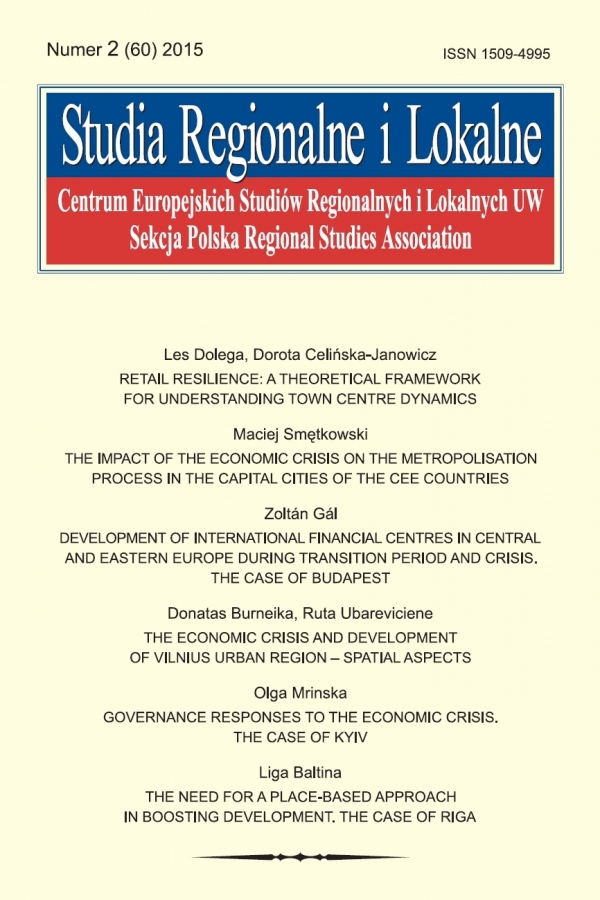Opublikowano w numerze
2(60)/2015

- Les Dolega, Dorota Celińska-JanowiczRetail resilience: A theoretical framework for understanding town centre dynamics[więcej]
- Maciej SmętkowskiWpływ kryzysu gospodarczego na proces metropolizacji w miastach stołecznych krajów Europy Środkowo-Wschodniej[więcej]
- Zoltán GálRozwój międzynarodowych centrów fiansowych w Europie Środkowej i Wschodniej w okresie transformacji i kryzysu. Przykład Budapesztu[więcej]
- Donatas Burneika, Ruta UbarevicieneKryzys gospodarczy a rozwój regionu miejskiego Wilna – aspekty przestrzenne[więcej]
- Olga MrinskaZarządzanie w okresie kryzysu gospodarczego. Przykład Kijowa[więcej]
- Liga BaltinaWykorzystanie koncepcji polityki ukierunkowanej terytorialnie w celu pobudzenia rozwoju. Przykład Rygi[więcej]
- REPORT – RSA Research Network ‘The impact ofglobal economic crisis on capital cities’[więcej]


